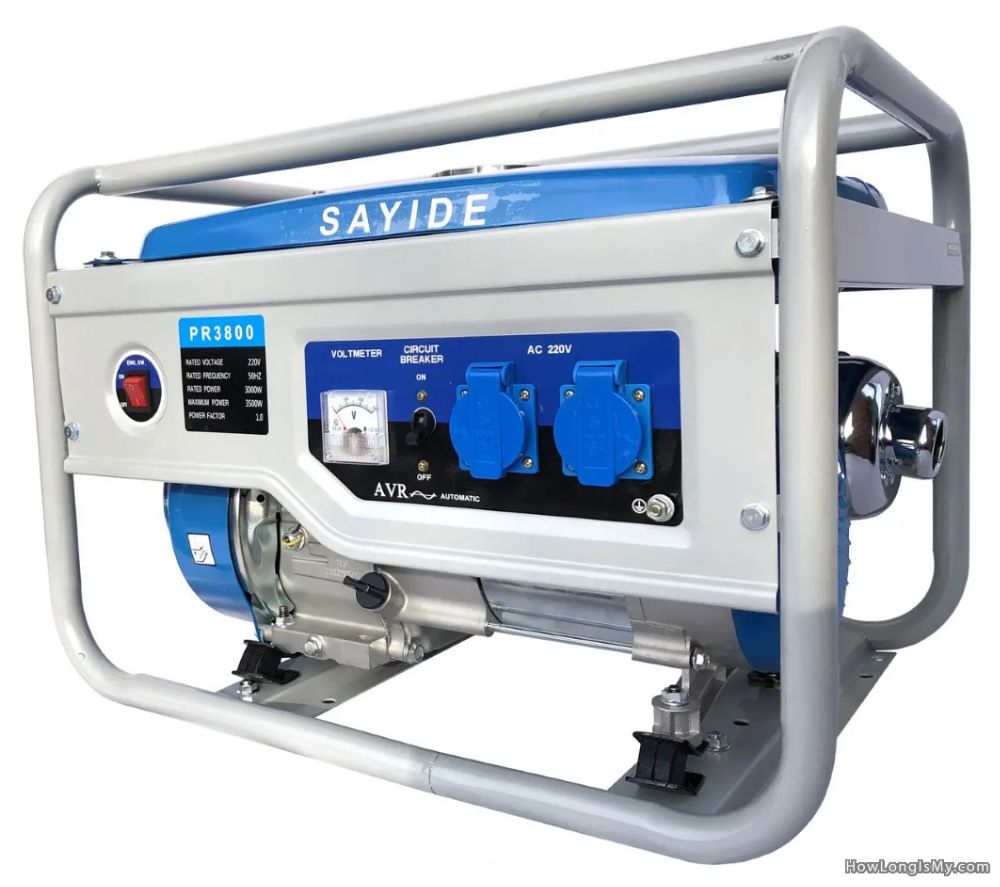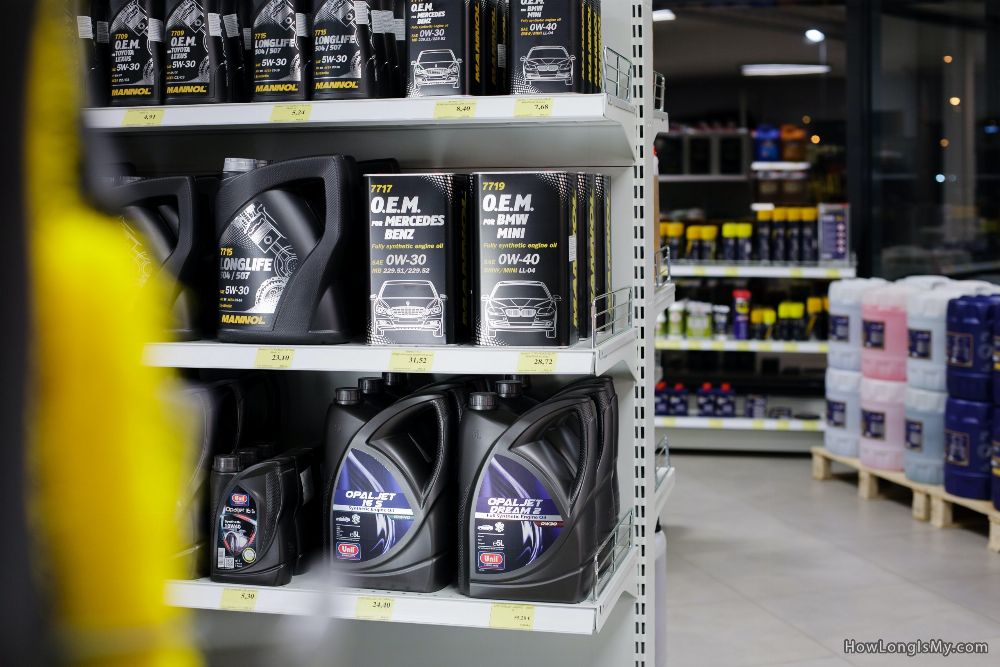Title: “Understanding the Lifespan of Synthetic Oil in Generators: A Comprehensive Guide”
Introduction:
Generators are essential devices that provide electricity during power outages, emergencies, or in remote locations where a stable power supply is not readily available. To keep generators running smoothly and efficiently, proper maintenance is crucial. One aspect of generator maintenance is the choice of lubricants, with synthetic oil being a popular option. In this article, we will explore the lifespan of synthetic oil in generators and the factors that affect its longevity.
1. The Basics of Synthetic Oil
 Before delving into the lifespan of synthetic oil in generators, let’s first understand what synthetic oil is and why it’s chosen over conventional mineral oil.
Before delving into the lifespan of synthetic oil in generators, let’s first understand what synthetic oil is and why it’s chosen over conventional mineral oil.
Composition
Synthetic oil is a man-made lubricant formulated through chemical synthesis. Unlike mineral oil, which is derived from crude oil, synthetic oil is engineered to have a uniform molecular structure with fewer impurities.
Benefits of Synthetic Oi
Superior lubrication: Synthetic oil provides better lubrication, reducing friction and wear on engine parts.
Temperature stability: It performs well in extreme temperatures, from freezing cold to scorching heat.
Improved cleanliness: Synthetic oil is less prone to sludge formation and deposits, keeping the engine clean.
Longer lifespan: It typically lasts longer than conventional mineral oil, which is one of the primary reasons it’s favored in generators.
2. Factors Affecting Synthetic Oil Lifespan in Generators
The lifespan of synthetic oil in a generator can vary significantly depending on several key factors. Let’s delve into these factors in detail.
 Oil Quality
Oil Quality
The quality of synthetic oil plays a vital role in its longevity. High-quality synthetic oil will generally last longer and provide better protection to your generator’s engine.
Generator Type
The type of generator you have, whether it’s a standby generator for emergency use or a portable generator for occasional use, can affect the oil change intervals. Standby generators typically run for extended periods, so the oil may require more frequent changes.
Operating Conditions
The environmental conditions in which the generator operates can have a significant impact on oil lifespan. Generators used in extreme climates, such as extremely hot or cold environments, may require more frequent oil changes.
Load and Usage
The load and frequency of use also influence the oil’s lifespan. Generators subjected to heavy loads or continuous operation will experience more significant stress on the oil and may require more frequent changes.
Maintenance Schedule
Adhering to a regular maintenance schedule, including oil changes, is crucial for prolonging the life of synthetic oil in a generator. Neglecting maintenance can lead to premature oil breakdown.
3. Synthetic Oil Change Intervals
The frequency at which you should change synthetic oil in your generator depends on a combination of the factors mentioned above. However, it’s essential to have a general guideline to follow.
Manufacturer’s Recommendations
Always start with the manufacturer’s recommendations for oil change intervals. These guidelines are based on extensive testing and are tailored to the specific generator model.
Time-Based Intervals
In the absence of specific recommendations, a general rule of thumb is to change the synthetic oil in your generator every 100 to 150 hours of operation. Time intervals, such as every 6-12 months, can also be used as a reference point for less frequent usage.
Oil Analysis
Some users choose to conduct oil analysis to determine the condition of the oil and the engine. This involves sending a sample of the used oil to a laboratory for testing. Oil analysis results can provide insights into whether the oil needs to be changed sooner or can last longer.
Monitoring Oil Condition
Regularly inspect the oil using a dipstick or oil analysis kit. If you notice a significant change in color, consistency, or the presence of contaminants, it’s a sign that the oil may need changing, regardless of the operating hours.
4. Extending Synthetic Oil Lifespan
To maximize the lifespan of synthetic oil in your generator and ensure the engine’s longevity, there are several practices you can adopt.
Regular Inspections
Routinely check the oil level and condition to catch any issues early. Top off the oil as needed to maintain the appropriate level.
Keep the Environment Clean
Ensure that the generator is placed in a clean and well-ventilated area to minimize the entry of contaminants into the oil.
Change the Oil Filter
Alongside oil changes, replace the oil filter according to the manufacturer’s recommendations. A clean filter can help extend the life of the oil.
Use a Quality Oil
Invest in high-quality synthetic oil specifically designed for generators. The extra cost is often justified by the improved performance and longer lifespan it offers.
Warm Up and Cool Down
Allow the generator to warm up and cool down before and after operation. This practice reduces thermal stress on the oil and the engine.
Regular Maintenance
Stick to a strict maintenance schedule, which includes oil changes, filter replacements, and overall system checks.
5. Signs of Oil Degradation
It’s essential to be vigilant for signs of oil degradation to prevent potential engine damage. Here are some common indicators that your synthetic oil may need changing:
Oil Color and Consistency
Darkening or thickening of the oil can indicate that it has reached the end of its effective lifespan.
Increased Engine Noise
If you notice increased engine noise or knocking sounds, it could be due to insufficient lubrication, a symptom of deteriorating oil.
Reduced Performance
A drop in generator performance, such as decreased power output or increased fuel consumption,maybee a sign that the oil needs changing.
Excessive Oil Consumption
If you find that the generator is consuming oil at an accelerated rate, it’s a clear indication that the oil is no longer providing proper lubrication.
Conclusion
Synthetic oil is a reliable choice for maintaining the performance and longevity of your generator’s engine. Its lifespan in a generator is influenced by several factors, including oil quality, operating conditions, and maintenance practices. By following the manufacturer’s recommendations, monitoring the oil condition, and conducting regular maintenance, you can ensure that the synthetic oil in your generator continues to protect your equipment and keep it running smoothly. Regular oil changes are an essential part of generator upkeep, and they can help you avoid costly repairs or premature engine failure. Always prioritize the health of your generator’s engine by giving it the care and attention it deserves.
